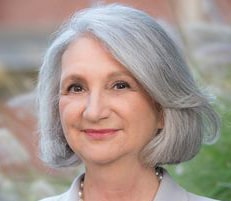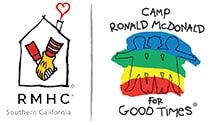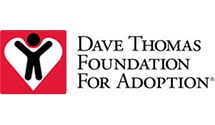Linda Sarna
“Nursing is such a diverse and fabulous career with multiple clinical settings and opportunities to specialize.”
Linda Sarna, PhD, RN, FAAN, AOCN, is the Interim Dean at the UCLA School of Nursing, and the Lulu Wolf-Hassenplug Endowed Chair in Nursing.
How did you get involved in a career in nursing?
Initially, my college major was geology. However, after my first field trip breaking up rocks I realized that I would much prefer dealing with people. I had taken the science courses that were prerequisites for the nursing program at UCLA so the switch was not too challenging. Once in the program, I found that I loved what nurses did and had a particular affinity for patients suffering from cancer. I felt that my nursing care could make a difference.
How did you become interested in Oncology and Tobacco Control?
As an oncology nurse, one of my earliest memories was taking care of a young man with end stage lung cancer and it had a profound impact on me. My Master’s Thesis focused on the hopes of terminally ill patients, and I encountered many patients with lung cancer, including women, which was a surprise to me. It would be a decade before lung cancer became the leading cause of cancer death among women. After my doctoral dissertation which focused on older people with lung cancer, I focused my research on the quality of life and symptoms of women with lung cancer. Lung cancer, the leading cause of cancer death among American men and women, and worldwide, still receives inadequate attention in the nursing literature. This early work identified the influence of tobacco use and exposure to secondhand smoke on cancer-related symptoms, comorbidity, and quality of life. As a result, I focused more directly on tobacco use and to the role that nurses could play in treating tobacco dependence, especially in the oncology setting.
Although over 30% of cancer deaths are due to tobacco use, there was little attention to preventing tobacco use or helping people quit smoking when I was in nursing school. Even though it was recognized as the leading cause of preventable death in the world, accounting for more deaths than HIV/AIDs, tuberculosis, and malaria combined, there was limited nursing research in the area. Evidenced-based interventions and effective policies to reduce tobacco-related disease were identified in 1996, but the implementation is lacking in the US and in many countries in the world. The ultimate goal of my work is to reduce tobacco-related diseases and suffering, especially tobacco-related cancers worldwide, and to enhance the critical but underdeveloped and unrecognized role that nurses can play in tobacco control (prevention, treatment, and reduction of exposure to second-hand smoke). I have had the opportunity to be involved in this work nationally and internationally in Asia, specifically China, and Eastern Europe. In collaboration with the International Society of Nurses in Cancer Care (ISNCC), I have been involved in studies in Poland, the Czech Republic, Romania, Slovenia, Slovakia, and Hungary to help prepare nurses to help smokers quit. I have had the great fortune to have worked on policy and position statements on tobacco control for nursing organizations, including the Oncology Nursing Society (ONS). This work endorsed by the American Nurses Association and the ISNCC, among others, and has helped to shape the profession.
Smoking among nurses is an important barrier to effective nursing intervention for tobacco dependence among patients. As the Principal Investigator for Tobacco Free Nurses (TFN, www.tobaccofreenurses.org), which provided the first ever US program focused on smoking as an issue for the nursing profession, we tested the use of an online program to support quit efforts. TFN was selected as an exemplar by the WHO as the type of program that health professionals could initiate to address factors influencing tobacco control.
I have many publications, including books and book chapters in this area. I was a co-editor of a monograph, produced in collaboration with the World Health Organization, which integrates policy and research efforts of nurses in response to the United Nation’s Summit on Non-Communicable Diseases (NCDs), the second ever UN meeting focused on a public health issue. The monograph addresses policy implications that support nurses’ ability to address NCDs in clinical practice, and it provides direction for spearheading and monitoring changes in practice.
What has been the most memorable experience of your Nursing Career?
There are so many. I will list the top three. I think that the ultimate experience which continues to be ongoing is my work my colleague, Dr. Stella Bialous, Associate Professor at UCSF, on the Tobacco Free Nurses initiative which began in 2003 www.tobaccofreenurses.org
Also right up there was the opportunity to analyze data from the Nurses’ Health Study, the largest prospective study of factors influencing women’s health. Going to Harvard was very exciting and our study revealed the extraordinary impact of smoking on female nurses’ survival and quality of life.
Lastly, I would include my opportunity to lead UCLA’s efforts to implement a tobacco-free policy on campus http://healthy.ucla.edu/pod/breathe_well This policy impacted over 37,000 people and I was very excited that as a nurse, I was able to educate my UCLA colleagues about the health dangers about tobacco use as well as the benefits of quitting.
What is the greatest difference between the clinical and administrative side of nursing? How was that transition for you?
In academics, my focus is on preparing new nurses to be caring and competent. The rewards come from students achieving their goals as compared to patients. As an administrator, my focus is on promoting and supporting my faculty rather than my own scholarship. I have many competing priorities but the students and faculty come first.
What are two or three Changes would you like to see in how Nurses are trained today?
1. Every nurse should receive adequate education during their nursing program so that they will feel confident and comfortable in helping patients quit smoking and in reducing exposure to secondhand smoke. This should be part of basic nursing education but we found that many nurses as well as graduates in other professions are not adequately prepared.
2. Every School of Nursing should address the health behaviors of student nurses, especially smoking. Healthcare professionals who smoke are less likely to intervene with smokers. I don’t want to lose any more nurses to tobacco-related illness so it is imperative that we support student nurses’ quit efforts.
3. Every nurse should receive their education on a tobacco-free campus. This policy will denormalize tobacco use making it easier for smokers to quit and preventing uptake by the next generations. Nurse educators are in a perfect position to lead this effort.
What advice do you give for students thinking about pursuing a career in nursing?
Nursing is such a diverse and fabulous career with multiple clinical settings and opportunities to specialize. If you do specialize, pick a field that you love and join a nursing organization in that area. For me, oncology nursing and the Oncology Nursing Society have provided so may opportunities to be involved in meaningful work with wonderful people in a variety of disciplines. I would definitely encourage any person entering nursing to seriously consider going on with their education and become an academic. We desperately need PhD prepared faculty to educate future nurses.




